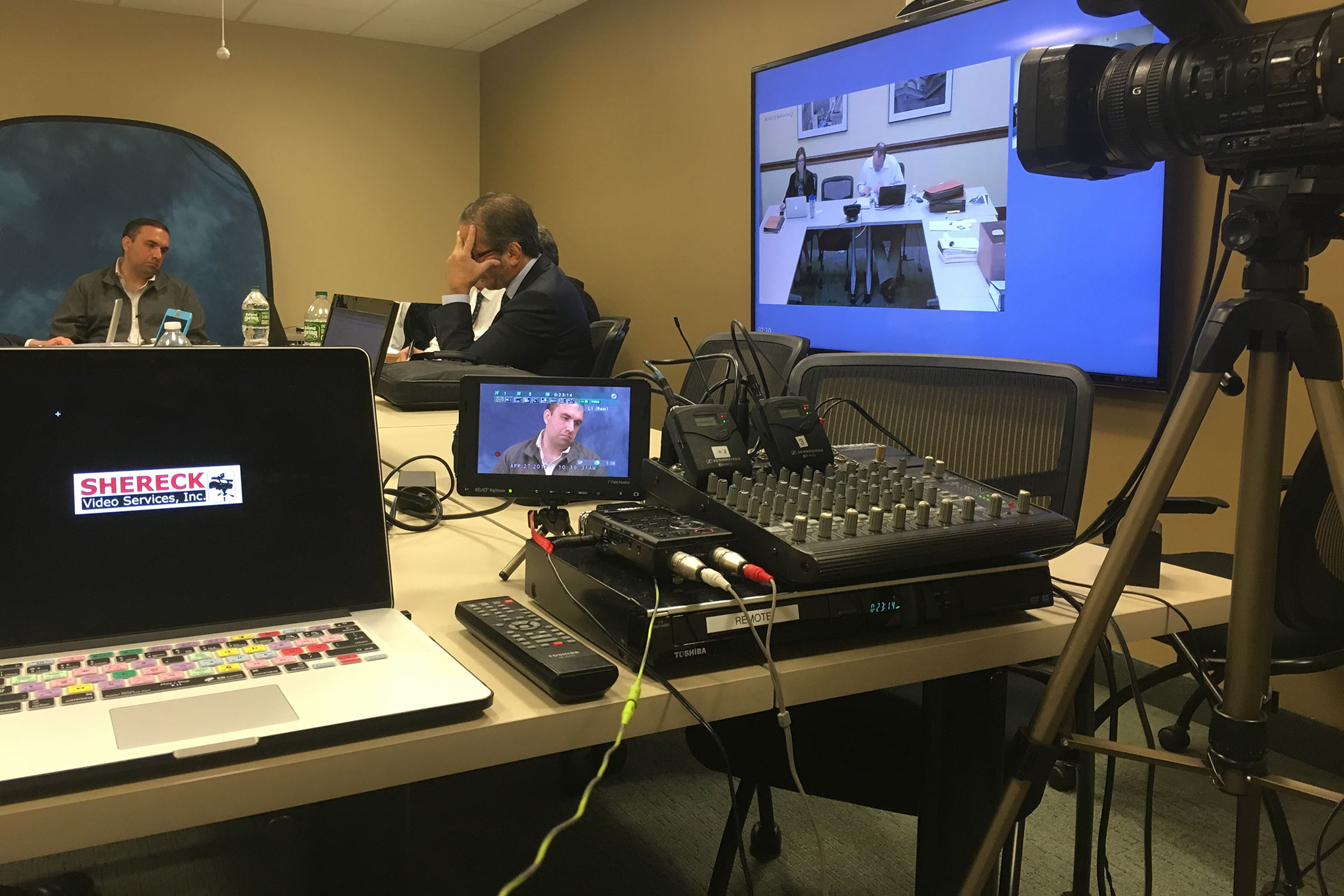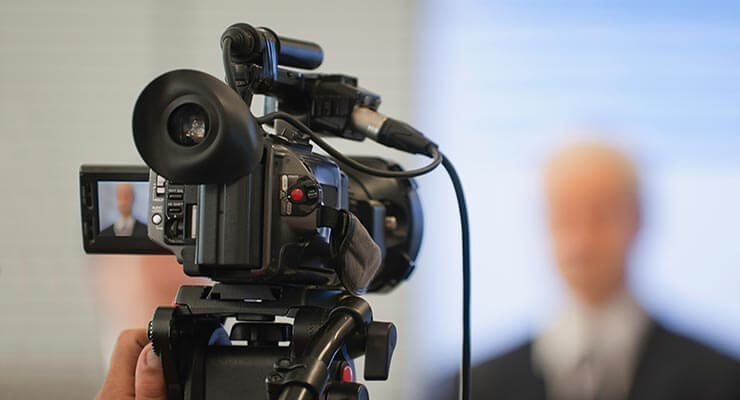Full-Service Legal Videography for Recording Legal Proceedings.
Full-Service Legal Videography for Recording Legal Proceedings.
Blog Article
The Role of Legal Videography in Depositions and Trials
Lawful videography has actually arised as a necessary device in both depositions and tests, supplying a diverse method to documenting witness testimonies. As legal professionals progressively recognize its worth, it motivates a much deeper assessment of how these visual records can affect juror understandings and test results.
Relevance of Legal Videography
Legal videography plays a critical function in the documents and discussion of depositions and tests. This specific area combines technological abilities with lawful expertise to create a reliable record of proceedings that can significantly influence situation outcomes. The appearance of legal videography boosts the understanding of witness statement, allowing jurors and courts to observe not only the talked words however additionally the temperament, feelings, and body language of the witnesses.

The value of legal videography extends past the court; it likewise plays an important role in maintaining evidence for future reference, whether for appeals or more legal action. As such, its integration into the lawful process is vital for ensuring a reasonable and precise representation of the facts, ultimately adding to the quest of justice.

Process of Legal Videography
While catching the nuances of depositions and trials, the procedure of legal videography entails a number of critical actions that ensure top notch, precise recordings. Originally, an expert lawful videographer prepares by reviewing the situation products and understanding the details requirements of the deposition or trial. This prep work includes familiarizing themselves with the individuals and the context, which assists in capturing relevant details.
On the day of the recording, the videographer establishes up the required devices, which typically includes high-definition cams, microphones, and correct lighting. Ensuring optimal angles and audio high quality is vital, as it straight influences the performance of the recording. The videographer interacts with lawyers and participants to develop procedures, making sure that everyone understands the recording procedure.
Throughout the deposition or test, the videographer thoroughly tapes the procedures, paying very close attention to both verbal and non-verbal hints. legal videography. This includes catching the attitude and responses of witnesses and attorneys. After the session concludes, the videographer might edit the video for clearness and compliance with legal standards, generating an end product that precisely mirrors the proceedings for future reference and use in lawful contexts
Benefits in Depositions
The incorporation of videography in depositions supplies many advantages that boost the overall procedure of gathering evidence. One key advantage is the ability to catch witness testaments with aesthetic and acoustic integrity, providing an extra exact representation of the witness's temperament, tone, and body movement. This multidimensional approach permits attorneys and courts to analyze reliability more efficiently than typical written transcripts alone.
Furthermore, videographed depositions function as a powerful device for protecting testimony. Must a witness become not available for test, their tape-recorded deposition can be played in court, making certain that their evidence continues to be available and relevant. This aspect dramatically decreases the danger of shedding important details that could affect situation outcomes.
In addition, the use of legal videography advertises far better preparation for lawyers. Reviewing video footage enables lawful groups to analyze and fine-tune their methods, recognizing strengths and weaknesses in their situations. This preparatory benefit can bring about more compelling discussions in court.
Last but not least, videography boosts the overall expertise of the deposition procedure, instilling confidence in clients regarding the thoroughness of their legal representation. By leveraging technology, lawyers can substantially enhance the performance of depositions.
Influence on Tests
In several tests, the assimilation of videography can dramatically affect the discussion of proof and the court's understanding. Legal videography catches witness statements and vital evidence in a dynamic format, allowing jurors to engage with the product on numerous degrees. This visual element enhances the storytelling facet of a test, giving context and psychological resonance that conventional text-based evidence may do not have.
Additionally, video recordings can serve as powerful devices for impeachment throughout cross-examination. When discrepancies arise in between a witness's previous statements and their courtroom testament, video clip evidence offers an unbiased referral that can persuade jurors' opinions. This immediacy and quality can boost the credibility of an event's narrative while at the same time undermining opposing debates.
Furthermore, making use of videography can help streamline intricate information, making it more easily accessible to jurors who might i was reading this have a hard time to grasp detailed details offered exclusively through spoken testimony. By incorporating visuals with auditory details, legal videography can boost retention and understanding, eventually affecting the jury's decision-making procedure. The effect of videography in trials prolongs past mere appearances; it plays an important duty in shaping the lawful landscape and end results.
Future Trends in Legal Videography
As Continued we look toward the future of lawful videography, numerous emerging patterns guarantee to improve its role within the court. One substantial trend is the combination of expert system (AI) in video analysis and editing and enhancing - legal videography. AI can streamline the process of recognizing vital moments in tape-recorded depositions, enabling lawyers to quickly access relevant material, consequently boosting performance in case preparation
Furthermore, the increase of online fact (VIRTUAL REALITY) and augmented reality (AR) technologies is expected to transform exactly how jurors experience proof. By submersing jurors in a substitute setting, these modern technologies can provide a more profound understanding of complex scenarios, resulting in more informed deliberations.

Additionally, the boosting need for remote depositions, sped up by the COVID-19 pandemic, will likely proceed. Lawful videographers will certainly need to adjust to brand-new software and platforms to guarantee premium recordings in online settings.
Lastly, the expanding focus on data safety and security will necessitate more stringent methods for keeping and sharing video clip proof. As the legal landscape develops, legal videographers have to remain abreast of these patterns to maintain their importance and efficiency in the judicial process.

Conclusion
In recap, lawful videography serves an essential feature in the judicial process, boosting the honesty of depositions Resources and trials. By recording the nuances of witness statements, this tool not only protects essential proof yet likewise help in presenting information successfully to jurors. The importance of visual documents in evaluating integrity and helping with interrogation can not be overemphasized. As technology remains to progress, lawful videography is poised to additional change its duty within the lawful landscape.
Report this page